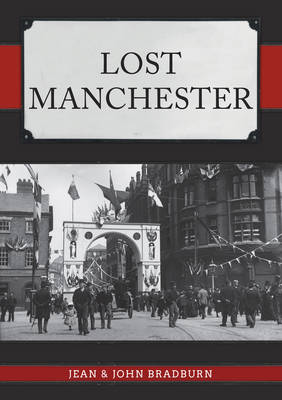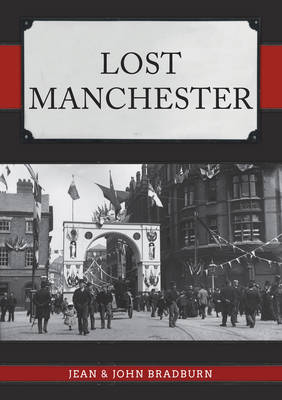
Door een staking bij bpost kan je online bestelling op dit moment iets langer onderweg zijn dan voorzien. Dringend iets nodig? Onze winkels ontvangen jou met open armen!
- Afhalen na 1 uur in een winkel met voorraad
- Gratis thuislevering in België vanaf € 30
- Ruim aanbod met 7 miljoen producten
Door een staking bij bpost kan je online bestelling op dit moment iets langer onderweg zijn dan voorzien. Dringend iets nodig? Onze winkels ontvangen jou met open armen!
- Afhalen na 1 uur in een winkel met voorraad
- Gratis thuislevering in België vanaf € 30
- Ruim aanbod met 7 miljoen producten
Zoeken
Omschrijving
Like many cities in the UK, Manchester has changed dramatically over the years and continues to do so. The 'Second City of Empire' was a powerhouse of the Industrial Revolution, especially in textile manufacture, and for a time was the most productive centre of cotton processing in the world. The boom ended as dramatically as it had begun, with the death of the textile industry and waning of the city's role as a major inland port, and the post-war decades were marked by industrial decline, urban decay and mass unemployment as factories and warehouses lay dormant and derelict. By the end of the twentieth century, however, Manchester's fortunes had changed as a massive programme of inner-city regeneration saw the city successfully transform itself into a thriving post-industrial centre of arts, culture and commerce. Lost Manchester describes this remarkable transformation in words and pictures, highlighting the many well-known buildings that are no longer part of the city's landscape. This is a book that will appeal not only to the city's residents but also the many visitors who come here every year to savour its delights.
Specificaties
Betrokkenen
- Auteur(s):
- Uitgeverij:
Inhoud
- Aantal bladzijden:
- 96
- Taal:
- Engels
- Reeks:
Eigenschappen
- Productcode (EAN):
- 9781445688046
- Verschijningsdatum:
- 15/02/2022
- Uitvoering:
- Paperback
- Formaat:
- Trade paperback (VS)
- Afmetingen:
- 165 mm x 234 mm
- Gewicht:
- 2825 g

Alleen bij Standaard Boekhandel
+ 44 punten op je klantenkaart van Standaard Boekhandel
Beoordelingen
We publiceren alleen reviews die voldoen aan de voorwaarden voor reviews. Bekijk onze voorwaarden voor reviews.











